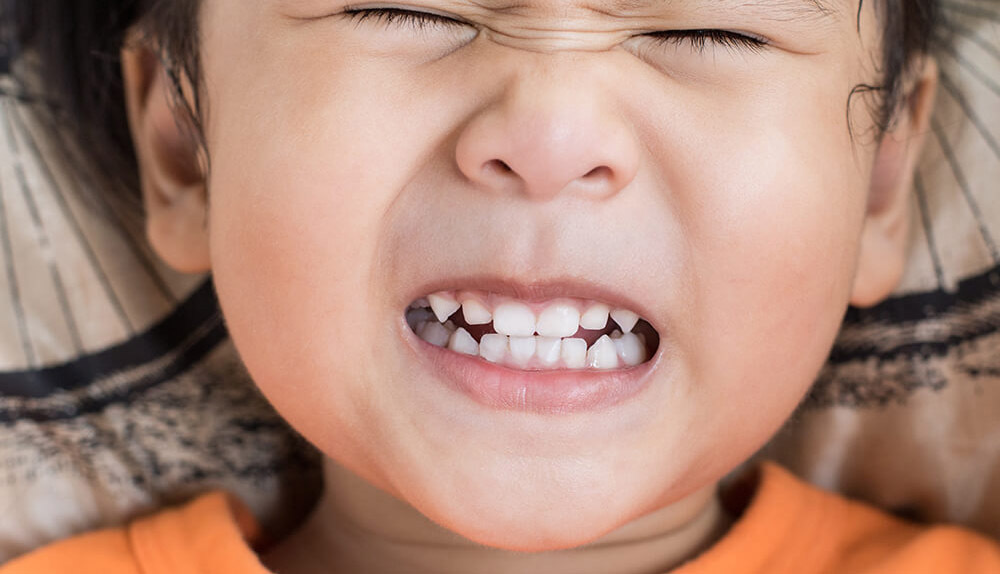
Teeth grinding, or bruxism, is a common concern among parents as they notice their children developing this habit. The grinding sound can be alarming, especially when it occurs during sleep. Understanding the underlying causes is essential for addressing this issue effectively. Many trusted dentists report that up to 30% of children experience teeth grinding at some point, though most outgrow it without intervention. This guide examines the potential triggers of teeth grinding in children, how to identify the signs, the impact on oral health, practical strategies for prevention, and when professional consultation becomes necessary for your child’s wellbeing.
Common Causes of Teeth Grinding
One common cause of teeth grinding in kids is stress or anxiety, which can manifest during the day or even while they sleep. Children, just like adults, can experience stress from various sources such as school, family dynamics, or even changes in routine. This stress or anxiety may lead them to grind their teeth as a way to cope with these overwhelming feelings. Assisting children in recognizing and managing their stress in healthy ways is crucial to preventing teeth grinding. By creating a supportive environment where kids feel comfortable expressing their emotions and offering relaxation techniques or activities, we can help alleviate the triggers that may be causing them to grind their teeth.
Signs and Symptoms to Watch For
As parents or caregivers, we must stay vigilant for signs and symptoms that could indicate teeth grinding in children. Here are some key indicators to watch out for:
- Audible Grinding Sounds: Listen for grinding noises, especially at night.
- Complaints of Jaw Pain: Children might mention discomfort or pain in their jaw muscles.
- Worn Down Teeth: Check for flattened or chipped teeth.
- Headaches or Earaches: Persistent headaches or earaches can sometimes be linked to teeth grinding.
Being aware of these signs can help us address teeth grinding early on, preventing potential dental issues and discomfort for our children. If you notice any of these symptoms, consulting a dentist is important for proper evaluation and guidance.
Impact of Teeth Grinding on Kids
Teeth grinding in children can have a significant impact on their oral health and overall well-being. As kids grind their teeth, they may experience worn enamel, tooth sensitivity, jaw pain, headaches, and disturbed sleep. These effects can lead to dental complications, such as cavities, cracked teeth, and even changes in facial structure over time. Furthermore, the physical discomfort and lack of quality sleep can affect a child’s mood, behavior, and academic performance. It’s essential for parents to recognize the signs of teeth grinding early on to prevent these negative consequences. Seeking professional dental care and implementing strategies to manage teeth grinding can help alleviate these impacts and promote healthier oral habits for children.
Tips to Help Kids Stop Grinding
To assist children in stopping teeth grinding, we can introduce gentle relaxation techniques before bedtime to help ease tension and promote a peaceful sleep. Here are some tips to help kids stop grinding:
- Establish a Relaxing Bedtime Routine: Encourage calming activities like reading or listening to soft music before bed.
- Limit Screen Time: Reduce exposure to screens before bedtime to promote relaxation.
- Encourage Stress-Relief Activities: Engage children in activities like yoga or deep breathing to help manage stress.
- Check for Hidden Issues: Address any dental concerns or anxiety triggers that may be contributing to teeth grinding.
When to Seek Professional Help
If your child’s teeth grinding persists despite trying various at-home strategies, it may be beneficial to consult with a pediatric dentist or healthcare provider for further evaluation and guidance. These professionals have the expertise to assess the severity of the teeth grinding, identify any hidden causes, and recommend appropriate treatment options. Seeking professional help is especially important if your child experiences jaw pain, worn-down teeth, or disrupted sleep due to teeth grinding. Moreover, if your child is showing signs of stress or anxiety that may be contributing to the teeth grinding, a mental health professional could also provide valuable support. Remember, early intervention can help prevent potential dental issues and alleviate discomfort for your child.
Related Topics:
